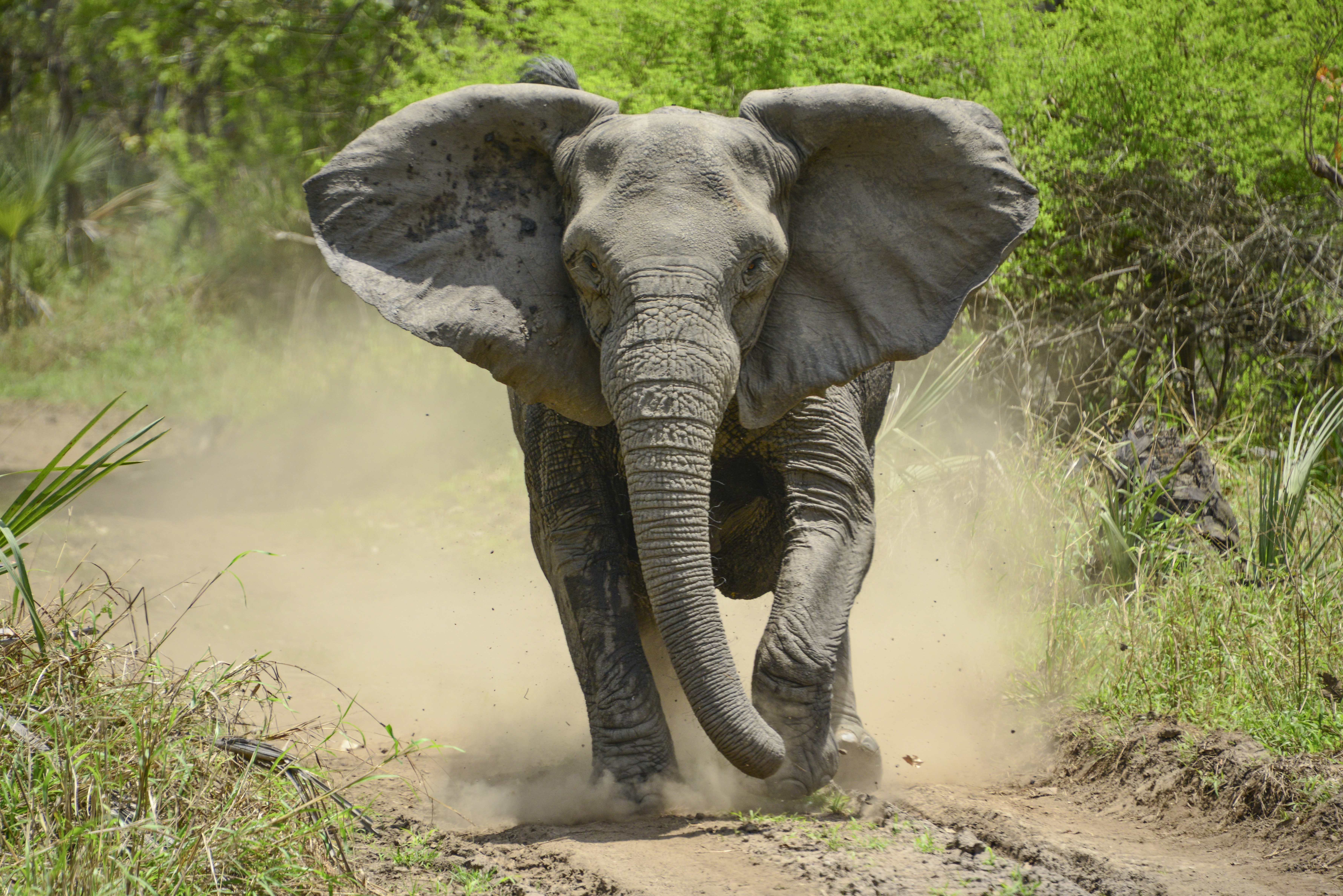Evolution is often portrayed as an achingly long process, taking generations upon generations of small changes accumulating over a timeline too long to appreciate in a single, puny human lifetime. In certain extreme circumstances, however, it’s possible to see the impacts of natural selection in just a few years – for example, throughout the 1980s in central Mozambique, ivory poaching acted as a potent evolutionary pressure that saw a dramatic rise of female African elephants born without tusks.
The spell of rapid evolution was kicked into hyperdrive by the Mozambican Civil War, a brutal conflict between 1977 and 1992 that led to an estimated death toll of around 1 million people and devastated the region’s biodiversity. In the Gorongosa National Park, located in the heart of the country, the number of large herbivores – including elephants, hippopotamuses, buffalo, zebra, and wildebeest – declined by over 90 percent during the period of bloodshed.
The destruction of habitat and the breakdown of conservation projects played a role in their demise, but intense poaching was arguably the prime factor. Both the government forces (FRELIMO) and the anti-communist rebels (RENAMO) prolifically hunted the country’s elephants to obtain ivory, a valuable resource that could be sold on the black market to fund their cause.

An angry-looking Elephant without tusks at Gorongosa National Park in Mozambique.
Image credit: Walter Mario Stein/Shutterstock.com
The conflict lasted 15 years, but it left a lasting imprint on the Gorongosa elephant population. A 2021 study published in the journal Science found that the frequency of tuskless females had risen from 52 elephants (18.5 percent of the total population) in the pre-war period to 108 (50.9 percent of the population) in the post-war period.
Using statistical analysis, the researchers were able to show that this rise in tusklessness was the direct result of intense poaching. Simply put: the tuskless elephants were more likely to survive the period of hardship, and thereby pass on their genes, because they didn’t possess any ivory.
It’s not clear why there were no tuskless male elephants in the Gorongosa population, although it might possibly have some link to one of the genes involved in tusk development, AMELX, which is also associated with an X-dominant, male-lethal trait. This means that male fetuses with the mutated gene are unlikely to survive pregnancy as, unlike females, they don’t have a second X chromosome to counteract the AMELX loci.
Nevertheless, the loss of tusks among the elephants of Gorongosa is a fascinating example of how natural selection can sometimes hit hard and fast. It’s also an important reminder that some of the most punchy evolutionary forces don’t just stem from cataclysmic upsets in the natural world, but from the actions of humans.
To better understand these complex relationships, perhaps it’s time to realize that the “human world” is not as separated from the “natural world” as we often like to assume.
“An extreme social event (a war, in this case) that triggered intense, selective exploitation of elephants crisply illustrates the pronounced coupling between human societies and evolutionary processes in other life forms. Through humanity’s cultures, economies, medicines, built environments, and more, societies have set in motion selective landscapes never before experienced by the world’s biota,” Chris T. Darimont and Fanie Pelletier wrote in a “Perspectives” article accompanying the 2021 study.
“Progress in understanding these complex relationships will require more interdisciplinary research. Until recently, natural and social sciences have largely been independent enterprises. In the context of harvest selection, evolutionary ecologists could team up with social scientists,” the pair added.
Source Link: Want Modern Proof Of Evolution? Look At The Elephants Of Mozambique